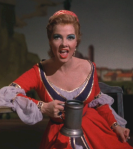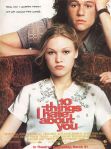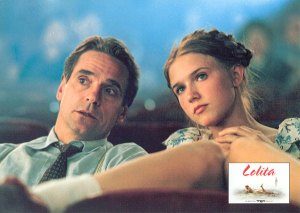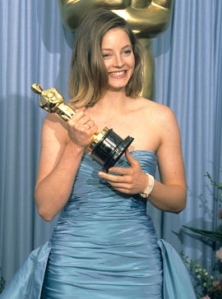By definition a feminist is someone who advocates equal rights for women—someone who believes that women are, in all aspects, equal to men. We tend to think of feminism in terms of modern times, and we certainly tend to think of feminists as women.
But what about William Shakespeare? 
To think that a man of the Renaissance might have believed in equality for women seems pretty far-fetched to begin with, but to look at the plays written by Shakespeare—which are rife with examples of misogyny and patriarchal stereotypes—the very idea seems absurd.
To read Shakespeare from a feminist perspective, we have to think like an English subject some 400 years ago. The bard was a product of his times, after all—and in 16th century England, men clearly ruled the civilized world.
Let’s look more closely at perhaps the most famous anti-feminist play of Shakespeare’s: “The Taming of the Shrew.” Katherine, the shrew in the play, is introduced as an undesirable woman. Unlike her demure and obedient sister, the highly prized Bianca, Katherine clearly doesn’t know her place in the man’s world.
But Katherine, like Shakespeare himself, is a product of her times, which is why she was not appreciated for her qualities:
She speaks her mind; therefore, she is froward.
She possesses a sharp wit; therefore, she is disagreeable.
She is intelligent; therefore, she is most undesirable—for how can a Renaissance man be king of his castle when there is the slightest possibility that a woman under his roof might be smarter than he?
In short, Katherine needed to be tamed in order to survive in such a misogynous world. Don’t revile her too much for doing so. Because in the end, the point is that she got what she wanted: out from under her father’s judgmental thumb, and likewise the harsh opinions of her countrymen.
On the surface, “The Taming of the Shrew” seems to support the misogynous idea that a woman needs to be tamed by her superior male counterpart. A deeper reading, however, supports the belief that Katherine merely pretended to submit to the taming, because in the 16th Century, this was sadly the only way for a woman to be permitted to use her wit and intelligence.
Some modern interpretations of the Shrew:

Katherine Grayson, “Kiss Me Kate,” 1953

Elizabeth Taylor, “The Taming of the Shrew,” 1967

Cybill Shepherd, “Atomic Shakespeare” (Moonlighting), 1986

- Julia Stiles, “10 Things I Hate About You,” 1999

Shirley Henderson, “The Taming of the Shrew” (ShakespeareRe-Told), 2005
For more insight on feminist interpretations of Shakespeare’s plays, see this article with highlights from Rita Freitas, PhD.
SOURCES REFERENCED:
Highan, Raymond. “’Is This the Promised End?’ Shakespeare and Feminism.” Dr. Nighan’s Shakespeare Page. Web. <http://www.stjohns-chs.org/english/shakespeare/feminism/feminism.html> 19 Apr 2012.
Jones, Keith. “Shakespeare and Film—A Microblog.” 04 Mar 2008, Web. <http://kajones.nwc.edu/Blog/Entries/2008/3/4_Mystery_Shakespearean_Derivatives,_Part_II.html> 19 Apr 2012.
Kane, Brian. “Kathryn Grayson.” Brian Kane Online. 19 Feb 2010, Web. <http://www.briankaneonline.com/tag/kathryn-grayson/> 19 Apr 2012.
Nolan, Lea. “Welcome Wednesday: Trish Melburn’s Take on Lessons from Teen Love.” Honestly YA: Six Authors, One Love. 15 Feb 2012, Web. <http://honestlyya.blogspot.com/2012/02/welcome-wednesday-trish-milburns-take.html> 19 Apr 2012.
“Shirley Henderson.” BBC Woman’s Hour. 16 Nov 2008, Web. <http://www.bbc.co.uk/radio4/womanshour/2005_46_wed_01.shtml> 19 Apr 2012.
“The Taming of the Shrew, Kate.” monologuedb: the monologue database. Web. <http://www.monologuedb.com/classic-female-monologues/the-taming-of-the-shrew-katherina-kate-minola/> 19 Apr 2012.
“William Shakespeare.” Wikipedia. 14 Apr 2012, Web. <http://en.wikipedia.org/wiki/William_Shakespeare> 19 Apr 2012.







